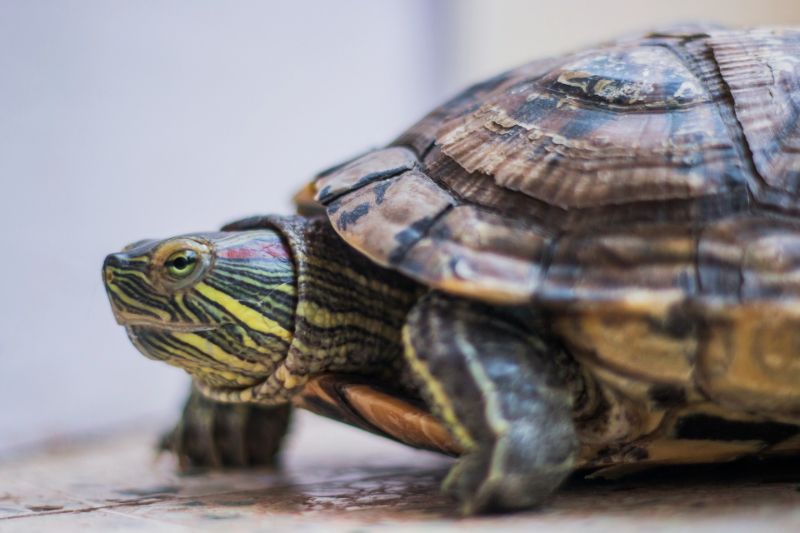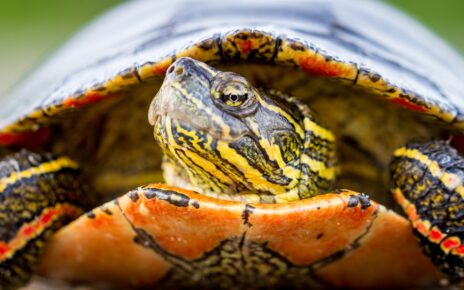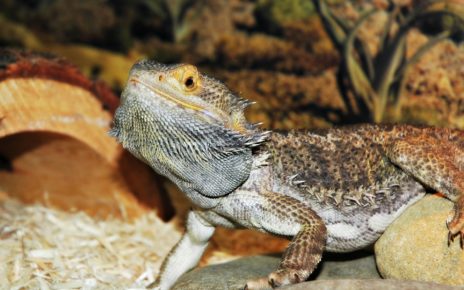Do you have a pet red-eared slider? If so, you may be wondering if you can feed it mealworms. On this page, we will discuss whether red-eared sliders can eat mealworms and superworms as part of their regular diet.
Can Red Eared Sliders Eat Mealworms?
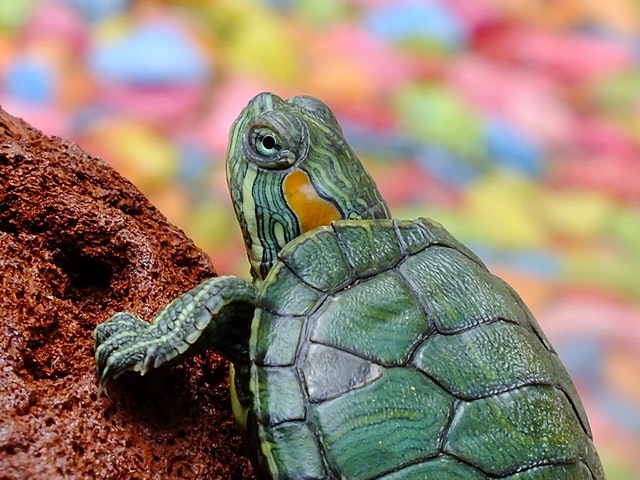
Red Eared Sliders can eat mealworms. However, it’s important to keep in mind that mealworms have a hard exoskeleton which can cause impaction if they’re consumed in large quantities. Therefore, it’s best to feed your Red-Eared Slider mealworms as an occasional treat rather than making them a staple part of their diet.
Can Turtles Eat Live Mealworms?
Turtles can eat live mealworms though it’s important to note that you should only feed your turtle gut-loaded live mealworms. This means that the worms have been fed a nutritious diet beforehand so that your turtle gets all the nutrients it needs. You can usually find gut-loaded live mealworms at pet stores or online (Click Here).
Can Baby Turtles Eat Mealworms?
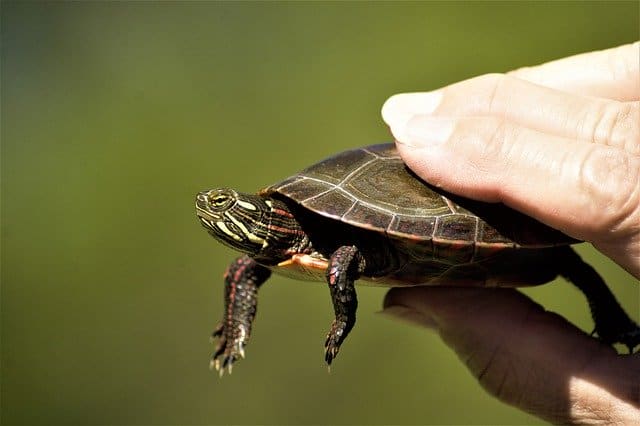
Baby turtles need a lot of protein to grow properly, so feeding them mealworms is a great way to ensure they get all the nutrients they need.
Can Red Eared Sliders Eat Superworms?
Red-eared sliders can eat superworms, but they should only be given a few at a time since they are much larger than regular mealworms. Superworms are also very high in fat, so overfeeding can lead to weight problems if you frequently give your red-eared slider superworms.
Are Mealworms Good for Turtles
Mealworms are an excellent nutritional supplement for turtles in moderation. They are high in protein and other nutrients, and they can help to keep your turtle healthy and active. However, you should only give your red-eared slider a limited number of mealworms as a treat, as they can also be high in fat.
Will Red-Rared Slider Turtles Eat Mealworms?
Mealworms can make a healthy snack for red-eared sliders and other turtles, but it’s essential to introduce them slowly at first. Start by feeding a few mealworms every other day and see how your pet turtle reacts. Then, if all goes well, you can feed them mealworms occasionally as a treat.
Red-Eared Slider Feeding
How Many Times A Day Should You Feed A Baby Red-Eared Slider?
You should feed a baby red-eared slider every day. Make sure to offer them a variety of food, including plants, along with a large amount of meaty foods and insects.
A red-eared slider hatchling should consume 5-25% leafy greens/vegetables, and 75-95% of their diet should be meaty foods and insects.
How Many Times a Day Should You Feed A Red-Eared Slider?
The amount you feed your red-eared slider depends on its size and age. However, a general rule of thumb is to offer them a mix of leafy greens and vegetables every other day, with meaty foods (such as crickets or worms) once a week. You can also offer them commercially-made turtle food pellets, which can be found at most pet stores and online.
How Many Mealworms Should I Feed My Red-Eared Slider?
Adult red-eared sliders can be fed 2 to 3 mealworms per day once a week, while babies and juveniles can eat 3 to 5 mealworms every other day.
Red Eared Slider Feeder Insects That Are Better Than Mealworms
Waxworms
Waxworms (Buy Online) are an excellent feeder insect for red-eared sliders. They are easier to swallow than mealworms and are very high in fat, making them a great source of energy for your turtle. Just be sure not to overdo it with waxworms, as too much fat can lead to obesity.
Silkworms
Silkworms (Buy Online) are an excellent choice for red-eared sliders because they are packed with nutrients. They are also easy to digest, making them perfect for baby red-eared sliders. Silkworms are also low in fat and are a good source of protein, calcium, and phosphorus.
Crickets
There are a few reasons crickets (Buy Online) may be a better choice than mealworms for your red-eared slider. For one, crickets are high in protein and low in fat, which can be beneficial for your slider’s health. Additionally, crickets are less likely to harbor parasites than mealworms or earthworms, making them safer to eat.

